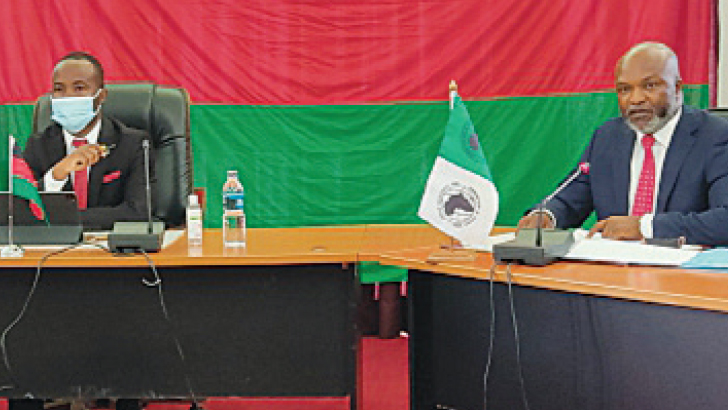Treasury, AfDB sign K12bn grant
The Ministry of Finance and the African Development Bank (AfDB) yesterday signed a $14 million (about K12 billion) grant agreement for the Support to the Digitalisation, Financial Inclusion and Competitiveness (DFIC) project.
The three-year project will run from 2022 to 2024.
The principal objective of the project is to promote digital financial inclusion and develop an enabling environment for digital trade by building a robust and harmonised e-payments policy to enhance economic competitiveness and social resilience.
The specific objectives are to, among others, develop a digital payment ecosystem that will improve financial inclusion, accountability, efficiency and transparency of the payments system and reduce costs associated with a cash-based system.

It will strengthen mechanisms to support the competitiveness of the private sector and improve access to national and export markets.
On the other hand, it will also improve access to financial services among the general population with a particular focus on small and medium enterprises (SMEs), women, youth and rural populations.
In a statement after signing the agreement, Minister of Finance and Economic Affairs Sosten Gwengwe said access to quality and affordable financial services, particularly to the excluded, enhances inclusive economic growth and reduces both poverty and income disparities.
He said: “As a country we are making strides in increasing access to financial services among our people; however, a large proportion of Malawians remain without access to basic financial services such as savings, credit, insurance and payments.”
Gwengwe thanked the bank for the grant assuring it Government will implement the project in accordance with the provisions of the agreements and laws of Malawi.
AfDB country manager MacMillan Anyanwu said the bank is committed to support Malawi’s development needs as seen through the grant agreement.
He said: “The signing of the DFIC project grant agreement is an important step towards promoting the use of electronic transactions in Malawi to increase access and use of affordable financial services, particularly, amongst women, youth and rural dwellers.
“The project will also enable more efficient business transactions, offering small businesses opportunity to gain access to new markets”.
The Malawi Financial Literacy and Consumer Protection Household follow-up survey showed that overall, only 29.1 percent of Malawians have access to formal financial services.
In addition, there are huge disparities in access between urban and rural areas as well as between men and women and that rural areas and women are disproportionately disadvantaged.
Only 24.7 percent of rural residents have access to formal financial services compared to 53.1 percent in the urban area. In terms of gender, 37.5 percent of adult males have access to formal financial services compared to 22.5 percent for females.
The DFIC project is therefore aligned to the Malawi long term vision, Malawi 2063 and the First 10-Year Implementation Plan (MIP-1).
Malawi 2063 envisions an inclusively wealthy and self-reliant nation. Through the industrialisation pillar, it envisions a vibrant knowledge-based economy with a strong manufacturing industry driven by productive and commercially vibrant agriculture and mining sectors.





